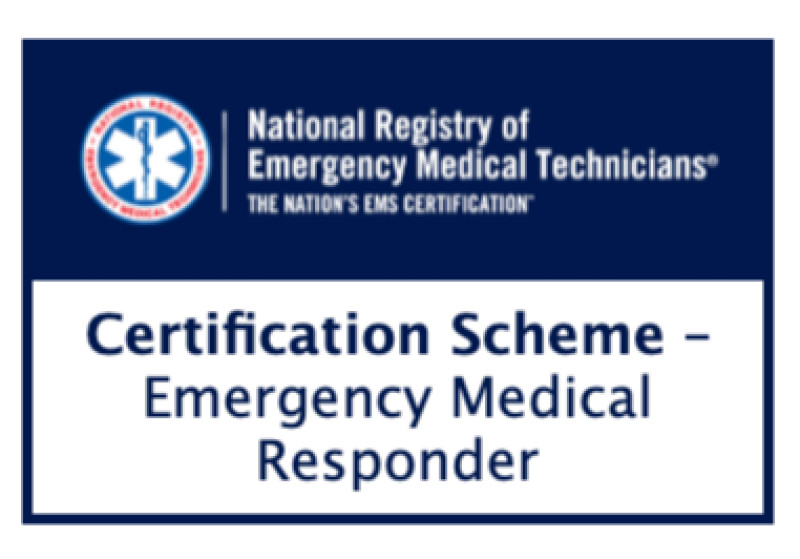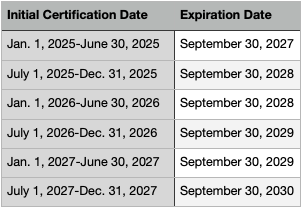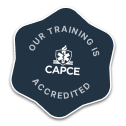
Introduction
When looking at the NREMT's policies, you may be asking yourself, “What is a Certification Scheme?” Or perhaps you were researching what it would take to be a Nationally Certified Emergency Medical Responder under the NREMT (NREMR) or Emergency Medical Technician (EMT), and you’ve stumbled upon this policy and are now wondering what it all means. A certification scheme is an overall picture of an EMR, including duties and responsibilities, their scope of practice, and how they attain and maintain certification1. Let’s first understand the job description of an Emergency Medical Responder (EMR).
EMR Description
The EMR is a health professional that operates in the out-of-hospital setting. The main goal of the EMR is to provide immediate help to patients needing life-saving procedures or assessments and to initiate the EMS chain of command. EMRs have the skills to complete critical interventions while awaiting a response from other EMS agencies or a higher level of care. One important note is that during transport, EMRs can help with patient care but should not be the primary healthcare provider or the highest level of care provider during transport1,2.
Prerequisite Requirements
The following outlines the education requirements to attain NREMR certification1:
- Successful completion of a state-approved EMR course within 2 years from the start date with verification from the program director
- Successful completion of a state-approved psychomotor skills assessment within 2 years of seeking certification
- Successful completion of a state-approved cognitive exam within 2 years of seeking certification
State Licensure to National Certification
If you have a state license but want to attain national certification, all the above requirements are valid if your EMR program was completed within the last 2 years.
However, if your EMR program was completed more than 2 years ago, you must provide proof of a successfully completed refresher course OR provide proof of successful completion of the national component of the National Continued Competency Program (NCCP)1.
How long is my NREMR certification valid?
Once again, the answer is 2 years. However, there is a caveat—all NREMR certifications expire on September 30th, 2 years after your certification completion date. If you completed your certification between July 1st and December 31st, your licensure will be valid until September 30th, 3 years in the future1. See our helpful chart below:

Recertification
Once you’re certified, you can go out into the world and practice as an NREMR! However, if you want to keep practicing as an NREMR, you’ll need to recertify BEFORE your expiration date (see table above or your NREMT card) using one of two methods mentioned below.
Method 1: Continuing Education (most popular method)
The continuing education (CE) requirement for NREMR recertification consists of 16 credits, all of which must be State EMS Office or CAPCE-approved. The following shows the breakdown of these CE credits:
- 8 Credits for the aforementioned National Continued Competency Program (NCCP)
- 4 Credits that satisfy the Local requirement for the NCCP
- 4 Credits that satisfy the Individual requirement for the NCCP
This means that you’ll need to complete 16 hours of continuing education between your initial certification and expiration dates. Many things can count as continuing education, including applicable college courses and CAPCE-accredited continuing education classes, such as those offered by EMT-CE!
If that sounds like a lot to navigate and manage, our recertification bundles are specifically designed to meet all of the NREMT’s standards, which makes it really simple!
Method 2: Examination
The other option for valid recertification is successful completion after the FIRST attempt at the National Registry EMR cognitive exam within one year of certification expiration.
After completing one of these methods of recertification, the candidate must pay the required fees and paperwork.
The final step is required for any candidate seeking “ACTIVE” provider status. A local “Training Officer” must verify the candidate meets the knowledge and skills required by an NREMR.
NOTE:
All individuals seeking EMS certification must adhere to all components of the Code of Conduct set forth by the NREMT.
Next Steps
After completing the prerequisites described above, a candidate can take the NREMT exam. The NREMT doesn’t have the psychomotor (skills-based) portion of the exam, just a cognitive (computer-based or “written”) exam. If you have more questions about the cognitive or written portion of the exam, we’ve recently written articles on the NREMT cognitive exam format that are worth a read!
Visit EMTprep.com for study guides, flashcards, videos, interactive exercises, and practice quizzes, all geared toward helping you pass the NREMT! If you follow our recommended study path using our “Readiness Score,” we guarantee you will pass the NREMT!
If you’re already certified and looking for those continuing education hours, EMT-CE.com has you covered! We have everything you need to meet your national AND state recertification requirements.
For the full policy, check out the NREMT's "Certification Scheme – Emergency Medical Responder."
- 1. Emergency Medical Responder - Certification Scheme. National Registry of Emergency Medical Technicians. (2021b, March 18). https://public.powerdms.com/Nat9346/documents/2308559 https://public.powerdms.com/Nat9346/documents/2308559
- 2. National Highway Traffic Safety Administration, & National Association of State EMS Officials. (2019). National EMS Scope of Practice Model 2019 (Technical Report DOT HS 812-666). National Highway Traffic Safety Administration. https://www.ems.gov/assets/National_EMS_Scope_of_Practice_Model_2019.pdf https://www.ems.gov/assets/National_EMS_Scope_of_Practice_Model_2019.pdf
- Dozens of courses and topics
- State-specific requirements
- We report to CAPCE in real time


